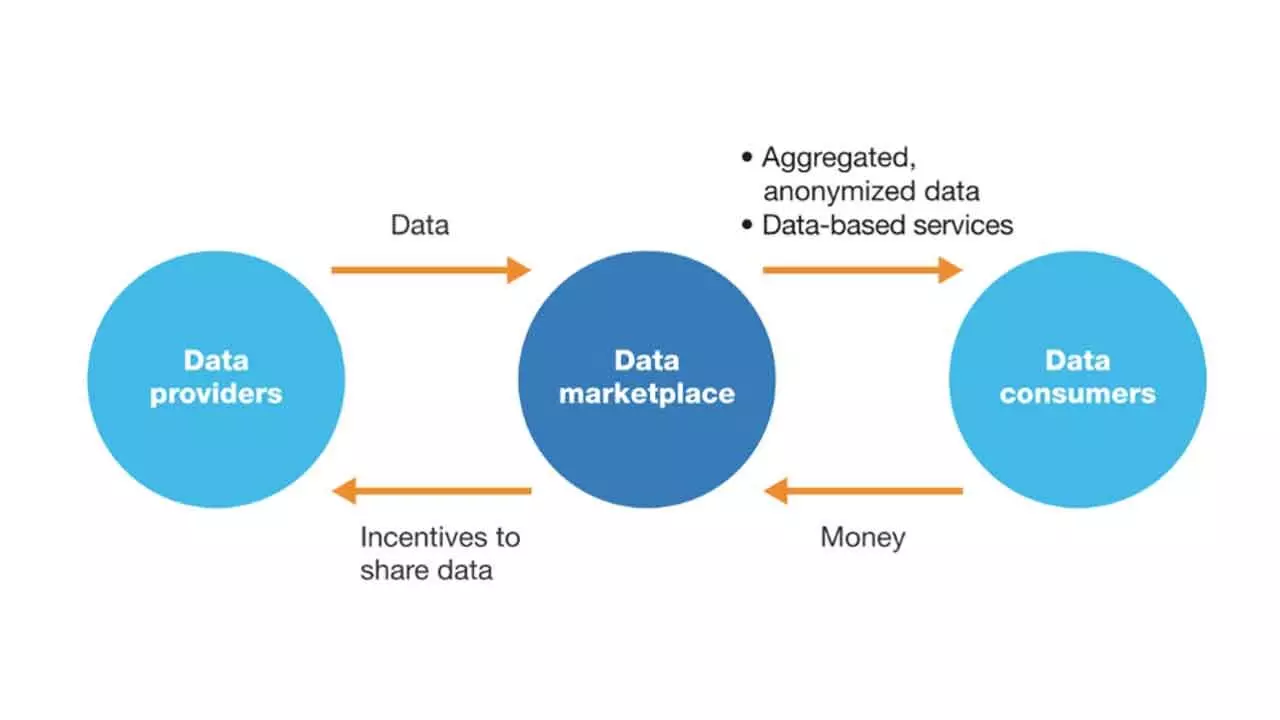Data As Currency: The Here To Stay Data Marketplaces
Traditionally, acquiring data involved lengthy processes of negotiation and compliance that lacked transparency
Data As Currency: The Here To Stay Data Marketplaces

The landscape of data monetization is rapidly evolving, with data marketplaces leading the charge in this transformation. These platforms enable the buying and selling of data assets, allowing organisations to access a broader range of datasets while also making available their own. By providing a structured environment for data exchange, data marketplaces increase transparency and security in transactions, unlocking their value for companies and facilitating insights from external sources that complement existing information.
Data marketplaces are fundamentally changing how organisations engage in data transactions. Traditionally, acquiring data involved lengthy processes of negotiation and compliance, often leading to inefficiencies and a lack of transparency. With data marketplaces, these exchanges are streamlined, enabling organizations to quickly access diverse datasets that enhance their analytics and decision-making processes.
For instance, a retail company seeking insights into consumer trends can easily purchase relevant datasets from a market research firm. This access allows businesses to optimize product offerings and marketing strategies, driving sales and improving customer satisfaction. The ability to monetize their own data also empowers companies to benefit from external insights, creating a symbiotic relationship that enhances overall business intelligence.
Advantages of data marketplaces:
Data marketplaces establish trust through verified data sources, ensuring compliance with regulations and ethical standards. By implementing rigorous validation processes, these platforms mitigate risks associated with data quality and integrity. Companies can confidently engage in transactions, knowing that the data they acquire meets the established criteria.
These marketplaces encourage collaboration among businesses, facilitating the sharing of non-sensitive data that can lead to mutual benefits. Companies can exchange insights without compromising competitive advantages, fostering an environment of cooperation that enhances innovation and growth. For example, two companies in related industries might share anonymized data to identify emerging market trends or consumer preferences.
As data becomes increasingly abundant, the ability to access niche datasets can provide significant competitive advantages. Organizations can leverage data marketplaces to find specialized datasets that enhance their analyses and inform strategic decisions.
For example, a fintech company could obtain credit scoring data from a credit bureau, enabling more accurate risk assessments and tailored financial products.
As the demand for data-driven insights continues to grow, data marketplaces are becoming essential for organizations looking to maximize the value of their data. They provide a unique opportunity to capitalize on data as a valuable asset, paving the way for innovative applications and enhanced business models.
Discussing cases:
Companies purchase market research and consumer behaviour data to enhance decision making. Organizations access large datasets for training AI models in areas like computer vision and natural language processing. Healthcare providers acquire anonymized patient data and clinical trial results to improve treatments and research. Financial institutions buy market data and risk assessments to refine products and manage risks.
Market size:
Approximately $3-5 billion at a CAGR of around 20-25% over the past few years. It is estimated to reach $10-15 billion at a projected CAGR of about 25-30 per cent from 2023 to 2030.
The rise of data marketplaces represents a pivotal shift in how organizations approach data monetization. By facilitating secure and transparent exchanges, these platforms enable companies to maximize the value of their data assets while gaining critical insights from external sources. As the market continues to grow, driven by increasing demand for data and analytics, data marketplaces will play an essential role in shaping the future of data monetization, transforming data into a true currency for businesses.
(The writer is a seasoned technologist and IIMA alumnus)

